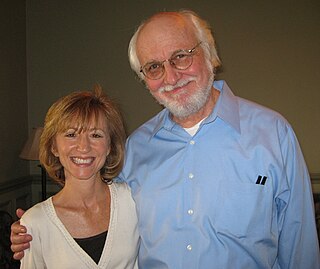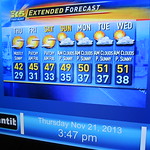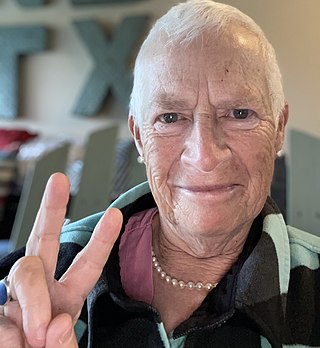
Kairos is an ancient Greek word meaning 'the right, critical, or opportune moment'. In modern Greek, kairos also means 'weather' or 'time'.
Computers and writing is a sub-field of college English studies about how computers and digital technologies affect literacy and the writing process. The range of inquiry in this field is broad including discussions on ethics when using computers in writing programs, how discourse can be produced through technologies, software development, and computer-aided literacy instruction. Some topics include hypertext theory, visual rhetoric, multimedia authoring, distance learning, digital rhetoric, usability studies, the patterns of online communities, how various media change reading and writing practices, textual conventions, and genres. Other topics examine social or critical issues in computer technology and literacy, such as the issues of the "digital divide", equitable access to computer-writing resources, and critical technological literacies. Many study by scientist such have shown that writing on computer is better than writing in a book
The Conference on College Composition and Communication is a national professional association of college and university writing instructors in the United States. The CCCC formed in 1949 as an organization within the National Council of Teachers of English (NCTE). CCCC is the largest organization dedicated to writing research, theory, and teaching worldwide.

The term composition as it refers to writing, can describe authors' decisions about, processes for designing, and sometimes the final product of, a composed linguistic work. In original use, it tended to describe practices concerning the development of oratorical performances, and eventually essays, narratives, or genres of imaginative literature, but since the mid-20th century emergence of the field of composition studies, its use has broadened to apply to any composed work: print or digital, alphanumeric or multimodal. As such, the composition of linguistic works goes beyond the exclusivity of written and oral documents to visual and digital arenas.

Digital rhetoric can be generally defined as communication that exists in the digital sphere. As such, digital rhetoric can be expressed in many different forms, including text, images, videos, and software. Due to the increasingly mediated nature of our contemporary society, there are no longer clear distinctions between digital and non-digital environments. This has expanded the scope of digital rhetoric to account for the increased fluidity with which humans interact with technology.

Composition studies is the professional field of writing, research, and instruction, focusing especially on writing at the college level in the United States. The flagship national organization for this field is the Conference on College Composition and Communication.
Electracy is a theory by Gregory Ulmer that describes the skills necessary to exploit the full communicative potential of a new electronic media such as multimedia, hypermedia, social software, and virtual worlds. According to Ulmer, electracy "is to digital media what literacy is to print." It encompasses the broader cultural, institutional, pedagogical, and ideological implications inherent in the major societal transition from print to electronic media. Electracy is a portmanteau of "electricity" and Jacques Derrida's term "trace".
Vectors: Journal of Culture and Technology in a Dynamic Vernacular was a peer-reviewed online academic journal published by the USC School of Cinematic Arts. It was established in March 2005 and covers the digital humanities, publishing work that "cannot exist in print". Vectors is recognized as an experimental precursor to the digital humanities, producing and publishing a range of highly interactive works of multimedia scholarship. Comparing Vectors with more traditional digital humanities publications, Patrick Svensson notes that, "Vectors, on the other hand, is clearly invested in the digital as an expressive medium in an experimental and creative way". The journal's last issue was published in 2013.
Rhetorical velocity is a term originating from the fields of Composition Studies and Rhetoric used to describe how rhetoricians may strategically theorize and anticipate the third party recomposition of their texts. In their 2009 article "Composing for Recomposition: Rhetorical Velocity and Delivery" in Kairos: A Journal of Rhetoric, Technology, and Pedagogy, Professors Jim Ridolfo and Dànielle Nicole DeVoss provide the example of a writer delivering a press release, where the writer of the release rhetorically anticipates the positive and negative ways in which the text may be recomposed into other texts, including news articles, blog posts, and video content. It is similar to having something go viral. Author, Sean Morey, agrees in his book "The Digital Writer" that rhetorical velocity is the way in which a creator predicts how the audience will make use of their original work.
Theories of rhetoric and composition pedagogy encompass a wide range of interdisciplinary fields centered on the instruction of writing. Noteworthy to the discipline is the influence of classical Ancient Greece and its treatment of rhetoric as a persuasive tool. Derived from the Greek work for public speaking, rhetoric's original concern dealt primarily with the spoken word. In the treatise Rhetoric, Aristotle identifies five Canons of the field of rhetoric: invention, arrangement, style, memory, and delivery. Since its inception in the spoken word, theories of rhetoric and composition have focused primarily on writing
The study and practice of visual rhetoric took a more prominent role in the field of composition studies towards the end of the twentieth century and onward. Proponents of its inclusion in composition typically point to the increasingly visual nature of society, and the increasing presence of visual texts. Literacy, they argue, can no longer be limited only to written text and must also include an understanding of the visual.

A digital studio provides both a technology-equipped space and technological/rhetorical support to students working individually or in groups on a variety of digital projects, such as designing a website, developing an electronic portfolio for a class, creating a blog, making edits, selecting images for a visual essay, or writing a script for a podcast.

The Digital Writing and Research Lab (DWRL) is a research lab at The University of Texas at Austin, United States, dedicated to the identification and promotion of twenty-first-century literacies. These literacies range from navigating online newsfeeds and participating in social networking sites to composing multimedia texts that require producing, sampling, and/or remixing media content.

Multimodality is the application of multiple literacies within one medium. Multiple literacies or "modes" contribute to an audience's understanding of a composition. Everything from the placement of images to the organization of the content to the method of delivery creates meaning. This is the result of a shift from isolated text being relied on as the primary source of communication, to the image being utilized more frequently in the digital age. Multimodality describes communication practices in terms of the textual, aural, linguistic, spatial, and visual resources used to compose messages.
Jonathan Alexander is an American rhetorician and memoirist. He is Chancellor's Professor of English, Informatics, Education, and Gender & Sexuality Studies at the University of California, Irvine. His scholarly and creative work is situated at the intersections of digital culture, sexuality, and composition studies. For his work in cultural journalism and memoir, Tom Lutz, founding editor of the Los Angeles Review of Books, has called him "one of our finest essayists."

Cynthia "Cindy" Selfe is an author, editor, scholar, and teacher in the field of Writing Studies, with a speciality in the subfield of computers and composition. She is Humanities Distinguished Professor Emerita in the English Department at the Ohio State University where she taught from 2006 until her retirement in 2016. Prior to that, she taught at Michigan Technological University. Selfe was the first woman and the first scholar from an English department to win the EDUCOM Medal for innovative computer use in higher education.

Feminist rhetoric emphasizes the narratives of all demographics, including women and other marginalized groups, into the consideration or practice of rhetoric. Feminist rhetoric does not focus exclusively on the rhetoric of women or feminists, but instead prioritizes the feminist principles of inclusivity, community, and equality over the classic, patriarchal model of persuasion that ultimately separates people from their own experience. Seen as the act of producing or the study of feminist discourses, feminist rhetoric emphasizes and supports the lived experiences and histories of all human beings in all manner of experiences. It also redefines traditional delivery sites to include non-traditional locations such as demonstrations, letter writing, and digital processes, and alternative practices such as rhetorical listening and productive silence. According to author and rhetorical feminist Cheryl Glenn in her book Rhetorical Feminism and This Thing Called Hope (2018), "rhetorical feminism is a set of tactics that multiplies rhetorical opportunities in terms of who counts as a rhetor, who can inhabit an audience, and what those audiences can do." Rhetorical feminism is a strategy that counters traditional forms of rhetoric, favoring dialogue over monologue and seeking to redefine the way audiences view rhetorical appeals.
Richard Holeton is an American writer and higher-education administrator. Holeton's creative works are foundational in the hypertext and electronic literature genres. As a writer, his most notable work is the hypertext novel Figurski at Findhorn on Acid, which has been recognized as an important early work of electronic literature and is included in the hypertext canon.

Cheryl Ball is an academic and scholar in rhetoric, composition, and publishing studies, and Director of the Digital Publishing Collaborative at Wayne State University. In the areas of scholarly and digital publishing, Ball is the executive director for the Council of Editors of Learned Journals and the Editor-in-Chief for the Library Publishing Curriculum. Ball also serves as co-editor of Kairos: A Journal of Rhetoric, Technology, and Pedagogy, an open access, online journal dedicated to multimodal academic publishing, which she has edited since 2006. Ball's awards include Best Article on Pedagogy or Curriculum in Technical or Science Communication from the Conference on College Composition and Communication (CCCC), the Computers and Composition Charles Moran Award for Distinguished Service to the Field, and the Technology Innovator Award presented by the CCCC Committee on Computers in Composition and Communication (7Cs). Her book, The New Work of Composing was the winner of the 2012 Computers and Composition Distinguished Book Award. Her contributions to academic research span the areas of digital publishing, new media scholarship, and multimodal writing pedagogy.
Carolyn Rae Miller is SAS Institute Distinguished Professor of Rhetoric and Technical Communication Emerita at North Carolina State University. In 2006 she won the Rigo Award for Lifetime Achievement in Communication Design from the ACM-SIGDOC and in 2016 the Cheryl Geisler Award for Outstanding Mentor, the Rhetoric Society of America. She is a Fellow of the Association of Teachers of Technical Writing (1995) and of the Rhetoric Society of America (2010). Her “groundbreaking and influential article” on “Genre as Social Action” Is foundational for Rhetorical Genre Studies. Three of her articles have been identified as essential works in Technical Communication.










